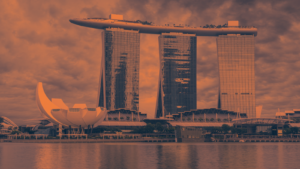Optimization is now a Problem: Reflection 2 from Cleantech Forum Europe
The second takeaway I had from our recent 15th annual Cleantech Forum Europe in Stockholm concerned incumbency – but from a different angle than usual. Typically, we think about incumbency from the point of view of incumbent products, incumbent firms or incumbent technologies. Less do we think about an incumbent mentality. But it is the incumbent business mentality of optimization which is at the heart of this realization: we are geared up for optimization, and optimization in turn looks set to cause us great self-harm. It is as much a problem as it is a business virtue.
Optimization, maximizing the effective use of a resource, is at the core of the “doing more with less” idea, which underpins our original trademarked 2002 definition of the cleantech theme. And clearly optimizing to reduce costs, and to reduce waste, remains a day-to-day business necessity.
However, so deeply embedded is optimization in how we all think and act as businesses that we have now nurtured and trained a generation or more of business managers to be optimized for optimization, and to primarily think about (and be rewarded for) efficiency and costs savings (for shareholders). That is because the globalized, competitive world that has evolved over recent decades means that most old industries have come under severe margin pressure and are forced to compete on optimization, and less on differentiation.
The challenge then becomes that there is nothing spare – be that measured in dollars, hours, or creative cycles – to invest in something different.
Are we now optimized for self-harm?
The challenge of the inconvenient truth of the climate and environmental crises we face (but are not facing up to) is that we need our business leaders to think differently, and shift from optimizing the status quo design of industries created for shareholder value to fundamentally re-casting wholly different industrial models and set-ups, which are optimized for survival and ongoing sustainability, and for the right/license to continue to operate. The alternative is increasingly stark: we continue to optimize for self-harm and our ultimate extinction.
There isn’t much point trying to win the casino on the Titanic!
So remarked someone to me recently, when discussing the state of things.
In the context of the recent Forum, for example, I felt this optimization problem most keenly in our sessions on the logistics, shipping and clothing industries – highly wasteful industries, all of which are locked into linear models and mentalities. We, the innovation community, will continue to dream up new and more closed loop ways of how such industries could behave, but changing industries that are optimized as linear supply chains is going to be a massive challenge.
Where are the incentives, skills and managers to make that happen, at the speed we need?
Another place where I see this optimization mentality at the fore right now relates to corporate innovation. Talk of optimizing innovation machines is very prevalent in corporate “open innovation” circles today. What they tend to mean by that is something like, “We tried a few things out of the box but they didn’t work, they didn’t find a home in the optimized world of our incumbent businesses, and so we are now demand-led whereby our business units set a problem (a challenge) and we go find solutions.” All very logical and understandable, but with an inconvenient truth.
My challenge to corporate open innovation leaders is: how will such an approach provide you with the radically different solutions that are needed for the requisite transformations? Einstein once remarked that problems don’t get solved by the same thinking (people) that created them. If you ask for a black Model T, guess what you’ll get!
Have we reached the limits of optimization as a business virtue?
If you’re aware of a private company that’s working to transform the way we use our resources, nominate them for the 2020 Global Cleantech 100.


